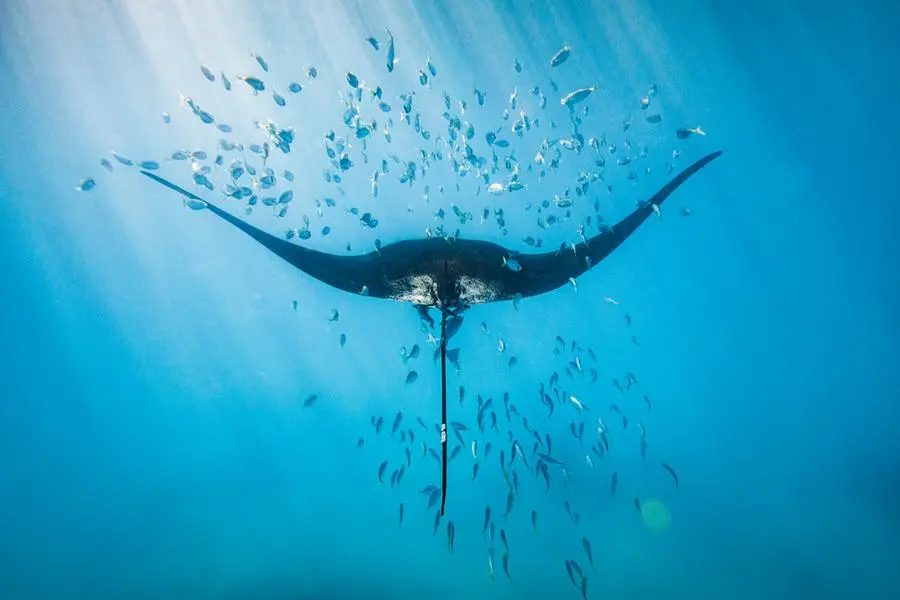PHOTO
DUBAI - A report by the UN Climate Change has confirmed that climate change poses a major threat to the safety of the world's oceans, adding to other ongoing threats from environmental changes caused by human activities. It is causing some serious changes in the oceans, including rising sea temperatures, sea level rise, and increased acidity.
According to the report, the oceans have long borne the brunt of the effects of human-caused climate change, as the largest carbon emitter on Earth. The ocean absorbs excess heat and energy emitted from rising emissions of greenhouse gases trapped in the Earth's system.
The oceans are the largest heat sink on Earth, absorbing 90 percent of the excess heat caused by climate change. They are also a highly efficient carbon sink, absorbing 23 percent of human-caused carbon dioxide emissions, according to the World Bank.
The absorption of carbon dioxide from the atmosphere by the oceans leads to increased acidity of the water, at the same time that oxygen levels are declining, in addition to major changes in ocean current patterns.
According to the World Bank, all of these factors are affecting the safety of the oceans and the types of marine life in them. Coral reefs, which are critically important marine ecosystems, are threatened by the triple threat of increased water acidity, rising sea temperatures, and sea level rise.
The World Bank also sees increased water acidity as a broader issue because it disrupts the carbon capture process that other species, including mollusks and crustaceans, perform. Meanwhile, changes in ocean current patterns threaten the exploitation of fish stocks, i.e. the number of fish that are born in a certain period of time and reach their early growth stage - with very real and direct impacts on coastal communities that depend on these resources.
According to the UN Climate Change, these changes ultimately lead to a lasting impact on marine biodiversity and the lives and livelihoods of coastal and non-coastal communities, including about 680 million people living in low-lying coastal areas, and about 2 billion people living in half of the world's major coastal cities. About half of the world's population depends on fish for protein, and about 60 million people work in the fishing and aquaculture sectors around the world.
The World Bank has created the blue economy approach, which focuses on the sustainable and integrated management of coastal and marine areas within the framework of ocean health.
The Global Blue Economy Programme, a multi-donor trust fund, provides support to governments in their efforts to improve fisheries, address marine pollution, manage coastal resources, and reduce the impacts of major sectors such as tourism, maritime transport, and renewable marine energy on ocean health.
Oceans contribute 1.5 trillion dollars to the global economy annually, and this figure is expected to double to 3 trillion dollars by 2030.




















